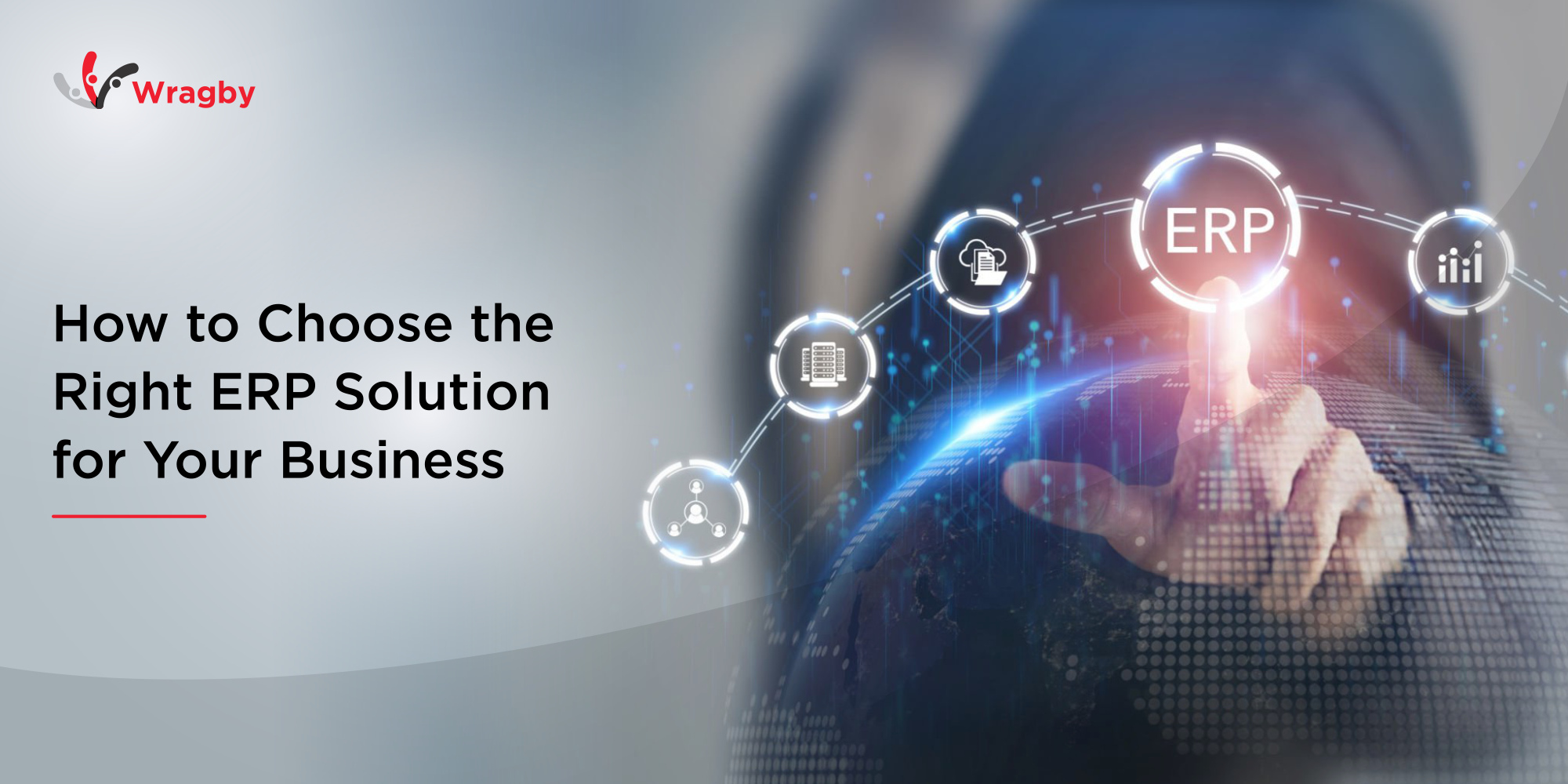
How to Choose the Right ERP Solution for Your Business
How to Choose the Right ERP Solution for Your Business
Choosing the right technology can feel like navigating a challenge, especially for small businesses that want to stay competitive. One tool that can really make a difference is an Enterprise Resource Planning (ERP) solution. You might be wondering, what exactly does an ERP do? Well, it’s designed to bring all your business processes together—finance, human resources, supply chain, and more—into one neat package. This means you can manage your resources more efficiently and keep your data organized in one place.
But with so many ERP software options out there, how do you know which one is right for you? That’s where this guide comes in. We’ll explore what ERP solutions are, the types available, and what you should consider when making your choice. By the end, you’ll be equipped with the knowledge to make a decision that fits your business needs.
What is an ERP Solution?
An ERP solution is essentially a set of integrated software applications that helps you manage your core business functions. It is having everything you need in one tool. With an ERP, you can automate processes, manage data flow between departments, and gain insights that can help you make better business decisions.
What’s great about ERP solutions is that they can be customized to suit your specific needs. This flexibility means you can add or remove features based on your business size and objectives. Whether you are looking for robust financial tools or customer relationship management capabilities, there is an ERP solution that fits the bill.
Moreover, implementing an ERP can future-proof your business. As you grow and evolve, your ERP can scale alongside you, adapting to new challenges and opportunities without requiring a complete overhaul.
Types of ERP Solutions
When it comes to ERP solutions, there’s no one-size-fits-all approach. Here are a few types you might encounter:
On-Premise ERP: This solution is installed on your company’s servers. While you get greater control and customization, it often requires a bigger upfront investment and ongoing maintenance.
Cloud-Based ERP: Hosted on the vendor’s servers, this type is accessible via the internet. It’s typically easier to set up and manage, making it a popular choice for SMEs. Plus, you can scale it up or down as needed, which is a huge perk for growing businesses.
Hybrid ERP: If you want the best of both worlds, a hybrid solution combines on-premise and cloud systems. This gives you the control you need for sensitive data while still enjoying the benefits of cloud computing.
Industry-Specific ERP: Some ERP solutions are tailored for particular industries, such as manufacturing, retail, or healthcare. These systems come with features that cater to the unique requirements of those sectors, making them a solid fit if you have specific needs.
What Are Your ERP Objectives?
Before jumping into the selection process, it’s essential to clarify your ERP objectives. What are you trying to achieve? Do you want to improve your financial reporting, enhance inventory management, or streamline customer service? Knowing what you want out of an ERP solution will help you narrow down your options and find a system that aligns with your goals.
Take some time to involve your team in this discussion. Gathering insights from various departments can give you a clearer picture of what needs improvement across your organization. With well-defined objectives, you’ll set yourself up for success when it’s time to implement the system.
Benefits of Using an ERP Software
Now that you know what an ERP is and what to consider when choosing one, let’s look at the benefits of using an ERP solution for your SME:
Improved Efficiency: Automating repetitive tasks and streamlining processes means you can focus more on growing your business.
Enhanced Data Visibility: With everything in one place, you can access real-time data across departments, helping you make informed decisions.
Better Financial Management: Robust financial tools allow you to track expenses and revenues more effectively, making budgeting and forecasting easier.
Scalability: As your business grows, your ERP system can grow with you, adapting to new processes and users.
Regulatory Compliance: Many ERP solutions come with built-in compliance features to help you stay on top of industry regulations.
Improved Customer Service: With integrated CRM tools, you can manage customer interactions more effectively, boosting satisfaction and loyalty.
Data Security: Modern ERP solutions include advanced security features to protect your sensitive information.
Cost Savings: Although there’s an upfront cost, the long-term efficiencies gained can lead to significant savings.
Collaboration: A centralized platform fosters better collaboration across teams, breaking down silos and enhancing communication.
Data Analytics: ERP systems often include analytics tools that provide valuable insights into your business performance, helping you make data-driven decisions.
Factors to Consider When Choosing the Right ERP Software: 10 Tips
When it’s time to select your ERP software, keep these ten tips in mind:
Define Your Needs: Identify the specific features and functionalities your business requires. This will help you create a shortlist of potential solutions.
Involve Your Team: Get input from different departments to ensure all perspectives are considered.
Research Vendors: Look for reputable vendors with a proven track record of success in your industry.
Check for Scalability: Ensure the solution can grow with your business and accommodate future needs.
Evaluate Customization Options: The more flexible the system, the better it can adapt to your unique processes.
Consider User Experience: A user-friendly interface will make it easier for your team to adopt the new system.
Look for Integration Capabilities: Ensure the ERP can integrate with your existing software and tools.
Review Support and Training: Choose a vendor that offers comprehensive support and training to help your team get up to speed.
Assess Total Cost of Ownership: Look beyond the initial purchase price and consider ongoing costs, including maintenance and upgrades.
Request Demos: Always ask for a demo to see the software in action before making a commitment.
How Much Budget Should You Allocate to Your ERP Investment?
Determining your ERP budget involves considering several factors. First, think about the size of your business and the complexity of the solution you need. Generally, you should allocate a budget that includes not just the initial software purchase but also implementation costs, ongoing maintenance, and potential upgrades.
A good rule of thumb is to allocate around 1% to 2% of your annual revenue to ERP investments. However, keep in mind that this can vary based on your specific needs. It’s wise to consult with financial advisors or ERP vendors to get a clearer picture of what you should expect.
How to Calculate Your ROI on an ERP Investment
Calculating the return on investment (ROI) for your ERP solution can help you understand its value. Start by identifying the costs associated with the ERP, including software, implementation, training, and ongoing maintenance. Then, look at the benefits—improved efficiency, cost savings, increased sales, and better customer satisfaction.
A simple ROI formula is:
ROI = (Net Profit from ERP – Total ERP Costs) / Total ERP Costs × 100
By comparing your ERP costs to the financial benefits it generates, you can assess whether the investment is worthwhile.
Our ERP Solutions: iBroka and wBizmanager
At Wragby, we offer two fantastic ERP solutions tailored to meet the needs of SMEs: iBroka and wBizmanager. iBroka offers an easy-to-manage insurance brokerage software solution that is fully integrated to provide all the necessary tools for insurance brokers to manage their businesses end-to-end.
With features designed specifically for the insurance industry, iBroka simplifies the complexities of insurance management, allowing brokers to focus on their clients and business growth.
On the other hand, wBizmanager is a comprehensive business application that streamlines core processes and enhances customer engagement.
With features like accounting and bank reconciliation, real-time business insights and reporting, inventory management, intuitive invoice management, human resource management, expense tracking, sales and profitability monitoring, customer management, and fixed asset management, it ensures operational efficiency while maintaining high levels of information availability, security, and integrity.
Both solutions are crafted to give you the control and insights you need to drive your business forward. If you’re ready to take your operations to the next level, let’s talk about how our ERP solutions can support your goals! Connect with our experts.


Leave a Reply